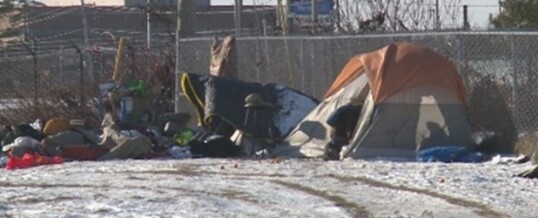
“Homeless often ‘treated like dirt’” ran a headline in the September 8th edition of the Times & Transcript. It grabbed my attention, and I felt a pang of guilt.
The increasing number of homeless people appearing in our communities, particularly over the past few years, is disconcerting to see. Recently, returning to my car with women friends, parked a couple of blocks north of Main Street, following a performance at the Capitol Theatre, as we left the lights and busyness of Main Street, we walked quicker. Earlier, we had noted and commented on the numbers of homeless people lingering on church steps near where we were parking. Not speaking for my friends, I can only say, I am less patient with those who live on the street – they sit on so many corners, block the entrance to the office where I used to work; station themselves in strategic locations as they seek donations; hide in wooded areas on my walking paths; erect their tarps and tents, leaving their debris in inconvenient spots. They make me feel uncomfortable. And now, when Wayne reaches out to give them some loose change, I chastise him, reminding him of a sign seen in the States last winter: ‘Don’t give money to the street people; donate instead to the organizations that support them.”
“Hear this, you that trample on the needy” the prophet Amos says in the first reading. I am not trampling on the needy, but I am judging them. And what right, pray tell, do I have to do that??? Would I do that, if I truly believed, as Oblate theologian Fr. Ron Rolheiser says, that it is among the poor where God sits: “God doesn’t just have a preferential option for the poor. God is within the poor.” Within that dirty person, sitting listlessly against a lamp post, dressed oddly, with her hand out, begging. Oh my.
In last week’s Scripture Reflection, Trevor reminded us of an analogy used by Pope Frances – the church as a field hospital. Francis says it is useless to talk of high cholesterol and blood sugars with someone who has been seriously injured. We need to “heal their wounds.” In the Times and Transcript article, Tanya Hansen, a support worker with the John Howard Society, acknowledges that many living on the street suffer from mental illness and substance abuse which they are unwilling or unable to treat. But she says, “We need housing and basic essential needs met before you can encourage folks to change the decisions they make. We need to take care of their basic needs first” – be the field hospital, heal the wounds.
In Search of the Good, a grade 12 catechetical resource published by the Canadian Bishops about 20 years ago, spoke about the importance of making eye contact with those who live on the street, even if we have no intention of giving them money. Otherwise, they tell us, they feel invisible. We need to show them the respect they deserve as people made in the image and likeness of the God who loves and made us all. Hansen said, “If we treat them with love and compassion and dignity, they respond in the same way.” Fair enough. But even when they don’t, and sometimes they won’t, we must. Not only because of who they are, although that is reason enough. But because of who we are. Because God is within us, as God is within them.
Rolheiser says, “A mature disciple doesn’t calculate or make distinctions as to whether God is inside of a certain situation or not, whether a person seems worth it or not, whether a person is a Christian or not, or whether a person appears to be a good person or not, before reaching out in service. A mature disciple serves whoever is in need, independent of those considerations.” Clearly, I have a bit of maturing to do yet.
Ellen Bennett
SEP
2022

About the Author: